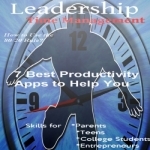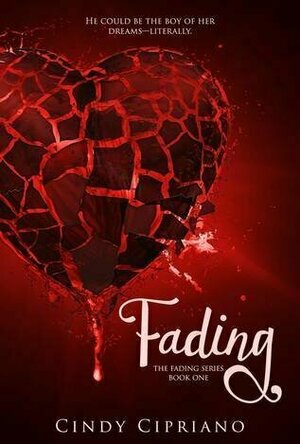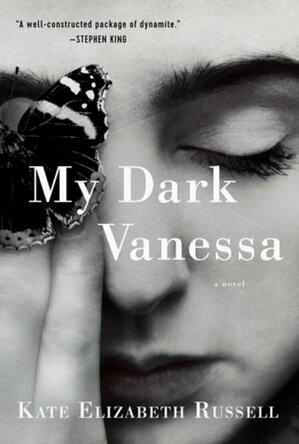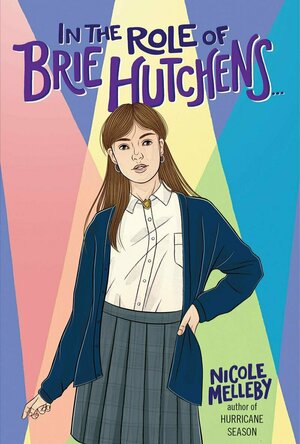Night Reader Reviews (683 KP) rated Fading in Books
Jan 9, 2020
Leath is the typical seventeen-year-old high school girl. She has her mother’s full support after her father died and her two best friends Victor and Anamae. The three of them have been considering college visits and what the future may hold for them. Leath and Victor have always been close but when Victor starts showing interest in being more than just friends with Leath she resists him. Victor believes Leath is confused and will come around to recognizing her feelings for him but Leath is not too sure. Then while working in her guidance councilor's office Leath sees the transfer file for a new student, James.
As if fate put them together James and Leath run into each other on Jame’s first day and they instantly become inseparable. Leath feels as if she has known James for her entire life and James feels the same way about her. Leath wonders if James is the same boy that Leath has actually been having dreams about all her life. Is she prepared to make the huge sacrifice required for her to be with James? Leath must choose between her friends, family, and freedom, or James before he makes the decision for her.
What I liked best about the book was honestly James himself. Even if he seemed somewhat creepy at times he is a great guy. His willingness to live alone and possibly face the wrath of his race just to protect Leath from his societies traditions are commendable. What I didn’t really like was the abrupt change around chapter fifteen. I understand the need for it but it was a little rough at first. I also didn’t understand completely why the fading worked so well on Leath that time when it didn’t work the first time. The only difference I can really come up with was the medication Leath was on and everyone else forgetting James helping her forget as well.
Teens of all ages will find this book to be appealing as the language is mild and there isn’t really any inappropriate content. Readers of romance will defiantly enjoy this book more so than fans of other genres. I give this book a rating of 4 out of 4. Fans of teen romance will love this twist on a classic forbidden love story. The entire concept of fading allows for the story to move on without having messy explanations in the middle of everything.
https://www.facebook.com/nightreaderreviews
Kristy H (1252 KP) rated My Dark Vanessa in Books
Mar 19, 2020
"'I'm going to ruin you.' He says it with obvious torment, a glimpse into how much he's thought about it, wrestled with it."
This book...wow. I was absolutely captivated by Vanessa's story. She tells her tale in two parts: her adolescence, as she meets Jacob Strane at school and they begin their relationship; and then the present, as Taylor Birch's story hits the press and Vanessa must deal with the fact that her love for Jacob Strane is being portrayed as abuse and assault.
"It's strange to know that whenever I remember myself at fifteen, I'll think of this."
For a book with such dark subject matter, it's really beautiful. Russell is a wonderful writer, and this story unfolds almost lyrically. It's so well-done and completely mesmerizing. The sections featuring young Vanessa capture that early adolescent yearning and longing so perfectly--that deep desire to feel needed and wanted. To Vanessa, this is a love story, a romantic tale of a man needing and loving her. She blocks out and overlooks the parts of the story that don't fit. Understanding that some victims don't see abuse as abuse is key to the story, and Russell portrays the dynamic between Strane and Vanessa so well.
"'It's just my luck,' he said, 'that when I finally find my soul mate, she's fifteen years old.'"
As a result, we get a very thoughtful look at abuse, rape, and assault. And, yes, the sections of older Vanessa's story touch across the #metoo movement, as Taylor Birch and others want so desperately for Vanessa to join their side, to share her story. For them or for Vanessa, it's hard to say. This book is so dark, yet so insightful. Vanessa's inner struggle--basically she's having to re-look at the entire foundation upon which her life is built--is one of the most profoundly written and moving journeys I've seen in literature in quite some time. It's not easy to read about, certainly, and it's not always easy to understand her actions, of course. The story can make you uncomfortable; it can feel problematic. But it's an important read, and it's so beautifully and poetically written. I highly recommend it (taking into account the obvious trigger warnings, of course). 4.5+ stars.

FluentWorlds: Learn English
Education and Games
App
FluentWorlds Description: Enjoy sparkling, realistic 3D game environments on your phone or tablet!...

Learn French Words & Phrases
Education and Games
App
Vocabulary Trainer for Learning French: Learn to Speak French for Travel, Business, Dating, Study &...

Aceable Drivers Ed
Education, Lifestyle and Stickers
App
Are you ready to get your driver license fast? The Aceable Drivers Ed App is a revolutionary...

Civil Engineering Basics - Study Material App
Book and Education
App
The app is a complete free guide of Civil Engineering Basics which covers all the important topics,...

Oxford Handbook of Clinical Pharmacy
Medical and Book
App
By downloading this “frame” app you will be given the opportunity to PURCHASE the latest version...

RealWorld Orthopaedics
Medical and Health & Fitness
App
* FEATURED IN AAOS' MULTIMEDIA EDUCATION CENTER * * Now compatible with iOS 8 * RealWorld...

Leadership:Time Management
Productivity and Magazines & Newspapers
App
ATTENTION: Not getting as much done as you should ? Discover How The Secrets of How Successful...
Kristy H (1252 KP) rated In the Role of Brie Hutchens... in Books
Jul 2, 2020
This is a very sweet, heartwarming, and touching story about a young girl finding her way and finding herself. I'm a sucker for coming of age stories, but when they are lesbian coming of age stories? I'm sold. Brie is an interesting character, who even comes across a little ungrateful at times--though perhaps she's just a typical teenager. She's embarrassed her dad works at her school and often seems a bit self-centered and in her own world. Okay, yeah, she's a teenager. But her battle with her sexual identity is certainly one I could identify with and it's presented in a lovely and truthful way. It's exactly the kind of book kids this age need, especially teens being raised in a religious environment.
The book is more religious than I expected, but it's not off-putting. As someone whose first love love came from a religious Catholic family, I saw so much of my past life in this book. I loved the fact that Brie is a soap fan--as kid who grew up loving Dallas, Days of Our Lives, Passions, and Sunset Beach, this part of the book was totally fun. Yet, Melleby worked in the angle in a serious way, too, as Brie uses soaps as a way to realize that maybe she isn't so different after all (thank you, soaps, for having some progressive characters ahead of your time).
"But when Brie and her mom sat in the living room, watching their soaps, Brie forgot they had so little in common."
Brie is fun and sweet and she's decidedly her own person, yet scared of how her religious mom and her Catholic school friends might see her if she reveals she likes girls. Her agonizing over this, her fear of coming out, is raw and realistic. The difficultly of coming out really resonates here, and Melleby does a wonderful job capturing how hard it is, even now.
Overall, this is a lovely and tender book--funny and sweet--and a great children's/YA read. If you love coming of age stories, YA novels, or any LQBTIA youth fiction, I think this novel will tug at your heartstrings.


